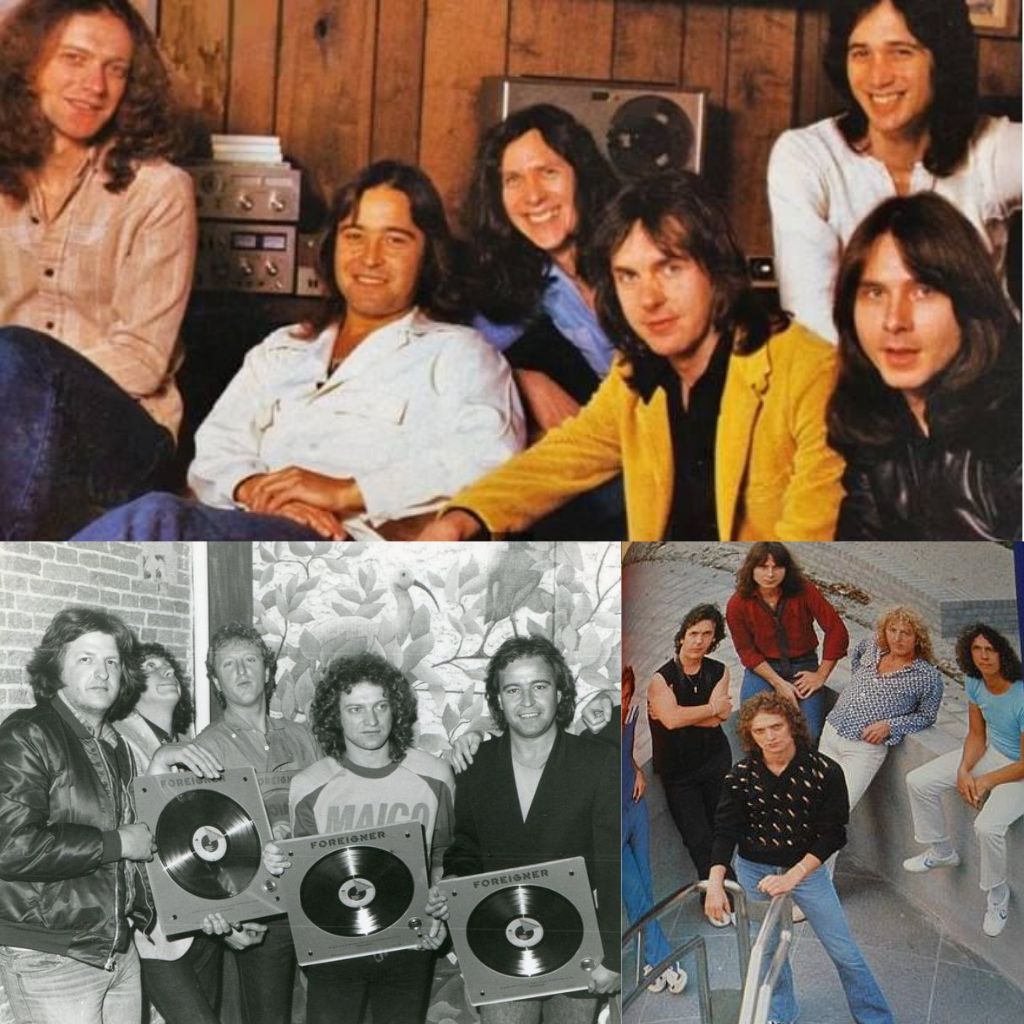
The Tumultuous Glare of Love’s Deception
Ah, to cast our minds back to the late 1970s, a time when rock music was undergoing a fascinating metamorphosis. Amidst the burgeoning punk scene and the lingering echoes of disco, a band emerged that skillfully blended hard rock’s power with a melodic sensibility that resonated deeply with millions. That band, of course, was Foreigner, and their 1978 album, Double Vision, along with its titular track, became a defining sound of the era. The song “Double Vision” itself, a veritable powerhouse of a rock anthem, soared to an impressive No. 2 on the Billboard Hot 100 chart upon its release, a testament to its immediate and widespread appeal. It was a time when FM radio was king, and you couldn’t drive five miles without hearing Lou Gramm’s distinctive vocals cutting through the airwaves, often proclaiming the very sentiments that made “Double Vision” so universally relatable.
The story behind “Double Vision” is as intriguing as the song is impactful. Penned by Lou Gramm and Mick Jones, the band’s primary songwriters, the track reportedly drew inspiration from the grueling realities of life on the road, particularly the disorienting effects of constant touring and the temptations that came with it. Imagine, if you will, being miles away from home, performing night after night, the line between reality and illusion blurring with each passing city. This sense of disorientation, of seeing things with a split perception, directly fueled the song’s lyrical content. It wasn’t just about physical exhaustion; it delved into the emotional and psychological toll of a demanding lifestyle, and how that could impact relationships. The “double vision” wasn’t merely a literal description of fatigue; it became a potent metaphor for a distorted view of love and fidelity, a world where the truth becomes elusive.
At its core, “Double Vision” explores the unsettling feeling of being caught in a deceptive situation, specifically within a romantic relationship. The lyrics paint a vivid picture of someone grappling with suspicions of infidelity, or perhaps even their own wavering commitment. “I’ve been lookin’ at you too long,” Gramm belts out, his voice laced with a potent mix of weariness and accusation, “and I see double vision.” This line immediately sets the tone, conveying a sense of unease and the dawning realization that something isn’t quite right. It’s the moment when the rose-tinted glasses fall away, and you’re confronted with a harsh, unvarnished truth – or at least, a highly unsettling possibility. The song perfectly captures that agonizing feeling of doubt, where you’re desperately trying to reconcile what you want to believe with what your gut tells you is actually happening. It’s a reflection on the fragility of trust and the pain of betrayal, whether real or perceived. For many, it evoked personal experiences of relationships teetering on the brink, where communication falters and suspicion takes root.
Beyond its lyrical depth, the musicality of “Double Vision” is what truly cemented its place in rock history. The iconic guitar riff, instantly recognizable and undeniably catchy, hooks you from the very first note. Mick Jones’ masterful guitar work provides a gritty, driving force that perfectly complements Gramm’s powerful vocals. The song builds with a raw energy, a relentless rhythm section propelling it forward, mirroring the protagonist’s growing anxiety. There’s a certain urgency in the arrangement, a sense of impending revelation that keeps the listener captivated. The interplay between the instrumentation and the vocals creates a dynamic tension that perfectly encapsulates the song’s themes of conflict and disillusionment. It’s a track that demands to be played loud, allowing its full impact to wash over you, pulling you back to a time when rock anthems dominated the airwaves and spoke directly to the heart of everyday struggles and triumphs. For those of us who came of age during that era, “Double Vision” isn’t just a song; it’s a time capsule, a powerful reminder of the music that shaped our lives and the complex emotions that define the human experience. It stands as a testament to Foreigner’s enduring legacy, a band that consistently delivered compelling narratives wrapped in unforgettable melodies.